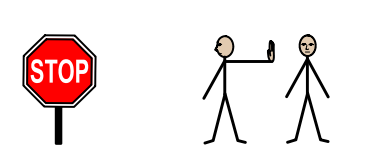Click on a word which is in bold to read what it means.


Our Belarussian member BelAPDliMI
has its 25th birthday this year.
Congratulations!
Elena Titova is the director of BelAPDliMi.
We asked her a few questions.

Who created BelAPDliMI 25 years ago?
Was it difficult?
BelAPDliMI was created in 1994
by some parents
of children with intellectual disabilities.
25 years ago,
Belarus was very different
from how it is today.
Children with disabilities were alone.
They spent most of their time at home.
There was no place where they could go.
They could not go to school.
So some parents of children with disabilities
decided to make things better.

What are your biggest successes?
From 1994 to today
we have done many projects
to make the lives of people with disabilities
better.
Children and young people with disabilities
and their parents
can now get support.
We made sure that they can get the support early on.
Now more and more children with disabilities
- live in the community
- get good support
- go to school.
Since 2017, young people older than 18
can go to day centres for people with disabilities.
There they can:
- do many activities
- learn things to be more independent.
This way,
many parents can go to work and earn money.
Now parents believe that their children
can have a good future.

What are your areas of work?
We have many regional organisations.
They help us do our work.
They can decide many things for themselves.
We support many families
with children and young people with disabilities.
We want to change the way society think
about people with disabilities.
We also want to protect the rights
of people with disabilities.
We do different projects.
Some projects we do together with organisations abroad.
Other things we do:
- legal support to families
and people with disabilities.
This means we can get them a lawyer
or help them if they have questions about the law.
- services to support people to live independently
-
ideas how you can employ someone with a disability,
with some support - easy-to-read employment
- make things more accessible,
for example by using easy-to-read services.

What are your plans
for the next 25 years?
We have big plans!
We think that the UN CRPD is very important.
The UN CRPD looks at different areas.
These are the things we want to do
in the next 25 years:
- change the way people think about people with disabilities
and end segregation - change the guardianship law in Belarus
and get a system with support for people disabilities - defend the right to work
for of people with disabilities - and talk about talk about supported jobs
with supported employment.
We also want to have set up an office
that translates texts into easy-to-read.
We are also thinking about a support centre
where people with disabilities can be trained
to support each other.

Finally, we want to help do something
for making the internet safe
for people with intellectual disabilities.
Now we are working on a project
called “Art for inclusion”.
This is supported by the US.
The project wants to make our regional organisations stronger.
Then they can organise more social activities
for people with disabilities.
Social activities are for example:
-
going to the park together
-
cooking together
-
organising parties
There is always a lot to do!





